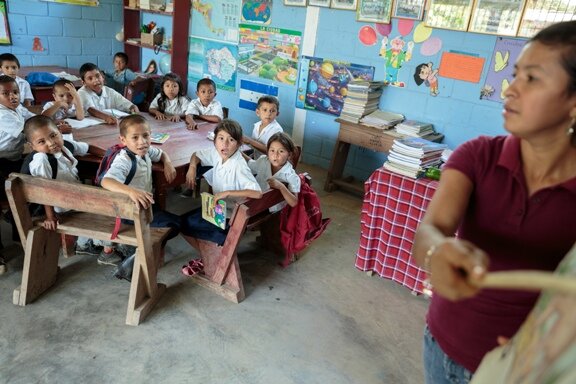Last week, I was very excited to see that Paraguay’s Ministries of Health and Education, in collaboration with the Pan American Health Organization (PAHO) aimed to treat more than 1.4 million school children, as well as homeless and indigenous populations, for intestinal worms during a four-day deworming campaign. This year’s campaign marks a significant scale-up from last year’s effort which reached 700,000 school children in comparison.
In order to double the outreach from previous campaigns, they spread the word in a number of ways, including through social media. Thanks to visual informational materials, and even the creation of a friendly mascot, children across the country were motivated to take deworming medicine.
Intestinal worm infections disproportionately affect the poor in Paraguay. More than 50 percent of Paraguayan households lack access to clean water and sanitation, exacerbating the spread of neglected tropical diseases (NTDs) like intestinal worms.
These infections rob children of nutrients and energy and can lead to anemia and malnutrition, preventing them from going to school and undermining their potential to learn and succeed. But thanks to Paraguay’s expanded efforts to treat and control intestinal worms, more and more children will benefit from improved health. As girls grow up free of worms, well-nourished and better educated, they will also become better prepared for a healthy pregnancy and a successful delivery of healthy babies.
Last week’s campaign, launched in the City of San Lorenzo on August 4th, promoted the importance of proper hygiene and sanitation in addition to distributing deworming medicine. Regular hand washing, increased use of toilets and latrines and washing fruits and vegetables are essential to help prevent the spread and reinfection of intestinal worms.
The government of Paraguay, PAHO, municipal governments, school teachers, and parents all played a role during the campaign and helped promote hygiene practices by sharing materials and conducting trainings. To ensure that rural populations also received medicines and educational materials, national health teams worked closely with local health departments as well. We congratulate the leadership of the Ministries of Health and Education for this innovative and collaborative work.
Paraguay’s 2014 deworming campaign demonstrates the country’s commitment to controlling and eliminating NTDs. However, Paraguay can do more to lessen the unnecessary suffering caused by NTDs.
Efforts need to be made to map the prevalence of intestinal parasites, track and report existing deworming efforts, and focus on establishing programmatic collaborations with neighboring countries Bolivia and Argentina to implement NTD efforts in the cross-national Chaco Region where many communities of indigenous people are living in extremely poor conditions. With a strong commitment to maintain these activities, Paraguay’s children will benefit from a healthier and more prosperous country.



 Soil-transmitted helminths (STHs)
Soil-transmitted helminths (STHs)